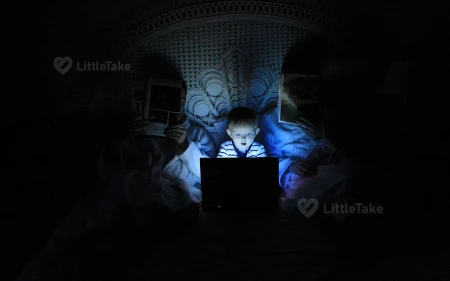
Building Trust & Communication with Kids Online
Building trust and effective communication with kids online is essential for fostering a healthy and safe digital environment. This article offers practical tips for parents to establish a strong foundation of trust and open communication with their children in the digital world.
1. Engage in Regular Conversations
Establish a routine of discussing online experiences with your child. Ask open-ended questions to encourage them to share their thoughts, feelings, and concerns about their digital lives. Show genuine interest and empathy in their experiences.
Real-Life Example: Family Dinner Talks
At family dinners, the Johnsons take turns sharing something interesting or challenging they encountered online that day. This helps create a supportive atmosphere for discussing digital experiences.
2. Be Present and Approachable
Make yourself available to your child when they need to talk or ask for advice. Foster an open and non-judgmental environment where they feel comfortable sharing their concerns and asking questions.
3. Educate Yourself about Online Trends and Dangers
Stay informed about the latest online trends, platforms, and potential dangers that your child may encounter. This knowledge will enable you to have informed conversations with your child and offer relevant advice.
4. Set Clear Expectations and Boundaries
Establish clear guidelines for your child's online behavior, including acceptable content, time limits, and privacy settings. Regularly review and update these expectations as your child matures and their digital experiences evolve.
5. Teach Digital Citizenship and Empathy
Help your child develop a strong sense of digital citizenship by teaching them the importance of respect, empathy, and kindness in their online interactions. Encourage them to consider the feelings and perspectives of others before posting or sharing content.
6. Monitor Online Activity, but Respect Privacy
Stay involved in your child's online life by monitoring their activity, while also respecting their privacy. Strive to find a balance between keeping them safe and allowing them to explore and learn independently.
7. Share Your Own Online Experiences
Model open communication by sharing your own digital experiences and challenges. This can help your child understand that they are not alone in navigating the complexities of the online world.
Conclusion
Building trust and communication with kids online requires regular conversations, being present and approachable, staying informed about online trends, setting clear expectations, teaching digital citizenship and empathy, monitoring online activity, and sharing your own experiences. By fostering a strong foundation of trust and open communication, parents can help their children thrive in the digital age.













